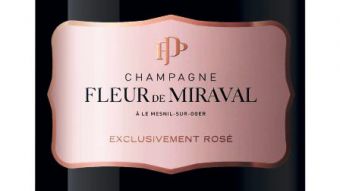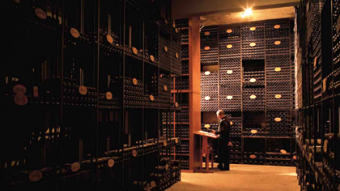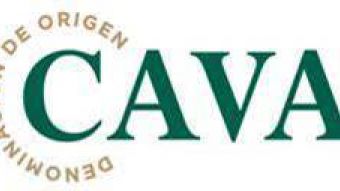Perelada, a Spanish winery from Empordà, is celebrating its 100th anniversary with a commitment to becoming a sustainability leader and producing exceptional wines.
The new winery, the first in Europe to obtain the world's most prestigious sustainability certification (LEED Gold), will certify all its vineyards as organic by 2025. Perelada will celebrate its centenary with a great immersive experience at the IDEAL Digital Arts Centre in Barcelona and with a tribute wine, which is presented as one of the most exclusive wines the winery has made so far.
{IMG1R] The Perelada winery (Empordà Designation of Origin) celebrates its centenary in 2023 with an eye towards the future and two major strategic objectives: to be a reference in sustainability and to continue growing in quality, moving from producing excellent wines to exceptional wines that reflect the landscape and diversity of the terroir of the Empordà region (Catalonia, Spain). This was announced by Javier Suqué, president and co-owner of Perelada along with his siblings, and Delfí Sanahuja, oenologist and technical director of the company for the past 30 years. They have also announced that the winery will celebrate its 100th anniversary with actions such as a large immersive party for everyone at the IDEAL Barcelona Digital Arts Center, or the creation of one of the most exclusive wines Perelada has produced to date: Vino Ed. Limitada Centenario [Centennial Wine].
Perelada is working to become a European leader in sustainability.
The winery has set the goal of being a leader in sustainability as a strategic priority. To achieve this, they already have the new winery inaugurated in 2022, the first in all of Europe to obtain the LEED Gold certification, the most prestigious sustainability certification in the world. In addition, from 2025, all their vineyards will have organic cultivation certification.
In the coming years, the winery will also advance in the expansion of regenerative agriculture, which takes care of the health of the land by maintaining, stimulating, and regenerating its fertility and biodiversity, and includes practices such as the elimination of all types of herbicides and the use of plants that do not erode the soil, etc.
The winery is also working on measures such as irrigation with recovered wastewater from treatment plants, as has been done at the Garbet estate for 25 years, or half-buried irrigation, which reaches the roots much earlier than aerial irrigation and prevents wastage, a process already used in the vineyards surrounding the new winery.
Faced with the evident signs of climate change, such as the current drought episode, Perelada is also looking for estates located in higher or more humid areas and studying varieties that better withstand high temperatures and lack of rain.
Sustainable practices extend from the vineyard to the new winery, with the use of geothermal energy, efficient use of water and electricity, the choice of sustainable materials and processes, thermal insulation, and the predominance of natural lighting. Additionally, from the winery to the bottle, starting in 2023, Perelada will begin bottling with 100-gram lighter, rough-textured, sustainable, and 100% recyclable bottles that reduce the carbon footprint and glass waste. The new wines from the winery, Amfitrió and Obsequi, will be the first to use the new bottle, and in the long term, this model is expected to be extended to a large part of production.
In the next five years, the company plans to launch more than 200 sustainability initiatives, with the purpose of making this cornerstone a corporate identity hallmark.
A new leap in quality with the impetus of the new winery
Perelada's second major goal is to make a new leap in quality thanks to its innovative winery, which allows for significant improvements in the vinification process, such as doing this by using 188 tanks to take the meticulous grape selection to the extreme, separating grapes according to the different soils of the various Perelada estates. The oenological improvement can already be seen in the young wines vinified in the new facilities, such as Collection, Inspirador, and Cigonyes, which are wines with more fruit, balance, elegance, and freshness. This spring, the first high-end wines made in the new winery will also hit the market: Finca Malaveïna 2020, Finca Espolla 2020, a very special wine to commemorate the centenary, and two new wines.
The Centenary wine is one of the highest-end wines, a unique wine of which only 1000 units have been made. This limited edition aims to pay tribute to the visionary dream of a family, a hundred years ago, to recover centuries of winemaking tradition in the Empordà region. It is made with the best grapes (garnacha and syrah) from Perelada's most emblematic estate: Garbet and aged for 12 months in French oak barrels and the rest in the bottle.
In line with innovation and experimentation, Perelada will present this year the wines Amfitrió and Obsequi. The former aims to symbolize the spirit of Perelada and blends local and foreign grape varieties in perfect balance. It is made with the red grenache variety from the Empordà region and other grape varieties. The latter is an iconic white wine made with white grenache and sauvignon blanc, a coupage that Perelada has offered to its most distinguished guests, from Dalí to Josep Pla.
Additionally, Perelada will also launch the Special Edition Centennial Cava in 2023, a cava that reinterprets the first cava made in the small winery that existed under the Castell de Peralada, the first used by the family. This edition recovers the original blend of the first cava, with the best selection of macabeo, xarel-lo, and parellada, from the vineyard of the Almirall estate in Castellví de la Marca. This Reserva Superior Guarda cava has been aged for 18 months in a bottle, allowing it to develop a delicate aroma while maintaining its fruity notes.
Perelada will celebrate its centenary with a host’s spirit.
The celebrations of Perelada’s centenary will begin this May with an exhibition and immersive tastings at Centre d’Arts Digitals Barcelona. It will be a celebration that will transport attendees to Perelada, its spirit and its history, through different spaces and experiences using immersive digital arts. The event will have a strong emotional and multisensory component that will make it a memorable experience. The event will combine oenology, gastronomy, art, and music for four days and will cater to different audiences. On May 6th and 7th, it will be open to the general public, who can enjoy the experience and try some of Perelada's wines with a €15 entrance fee.
One hundred years of a dream: making great wines in a unique land, the Empordà
The history of Perelada began a century ago when the Mateu family purchased the Castell de Peralada and the adjacent monastery and decided to revitalize the region's long viticultural tradition. The first wines, made in the winery and cellars under the monastery, enchanted the public and renowned personalities such as Eisenhower or Dalí himself.
In the 60s, the success of the Castell de Perelada Rosé Champagne would mark a historical milestone, while Miquel Mateu and his son-in-law Artur Suqué were driving the expansion of the brand and started to buy estates to have their own vineyards.
In the 90s, Javier Suqué Mateu, son of Artur Suqué, took the reins of the business, leading the expansion and modernization of Perelada wines and cavas with a focus on quality. That same year, their first high-end wine, Gran Claustre [Great Cloister], was born, and in the same decade, the first Perelada estate wine, Malaveïna [lit. “bad neighbour (she/her)”], was created, one of the winery's most emblematic wines, and Garbet, a multiple award-winning wine considered among the top 10 wines in Catalonia.
In 2022, Perelada inaugurated its new and innovative winery, the first in Europe to obtain the LEED® Gold certification, one of the most prestigious sustainability recognitions globally.
Today, the Peralada complex as a whole is made up of the Castell de Peralada and the Monastery of Carme, with its Gothic church and cloister from the 14th century, the wine museum and the glass and ceramic collection, the Hispano-*Suiza room, the exceptional library, the gardens, the Hotel Peralada 5*, the Wine Spa, the Golf, the prestigious Peralada Music Festival, the Peralada Casino and four gastronomic proposals: the Castell Peralada restaurant (with one Michelin star), the L'Olivera restaurant, the Shiro by Paco Pérez restaurant, and the gastronomic wine bar Celler 1923, located in the same winery.




